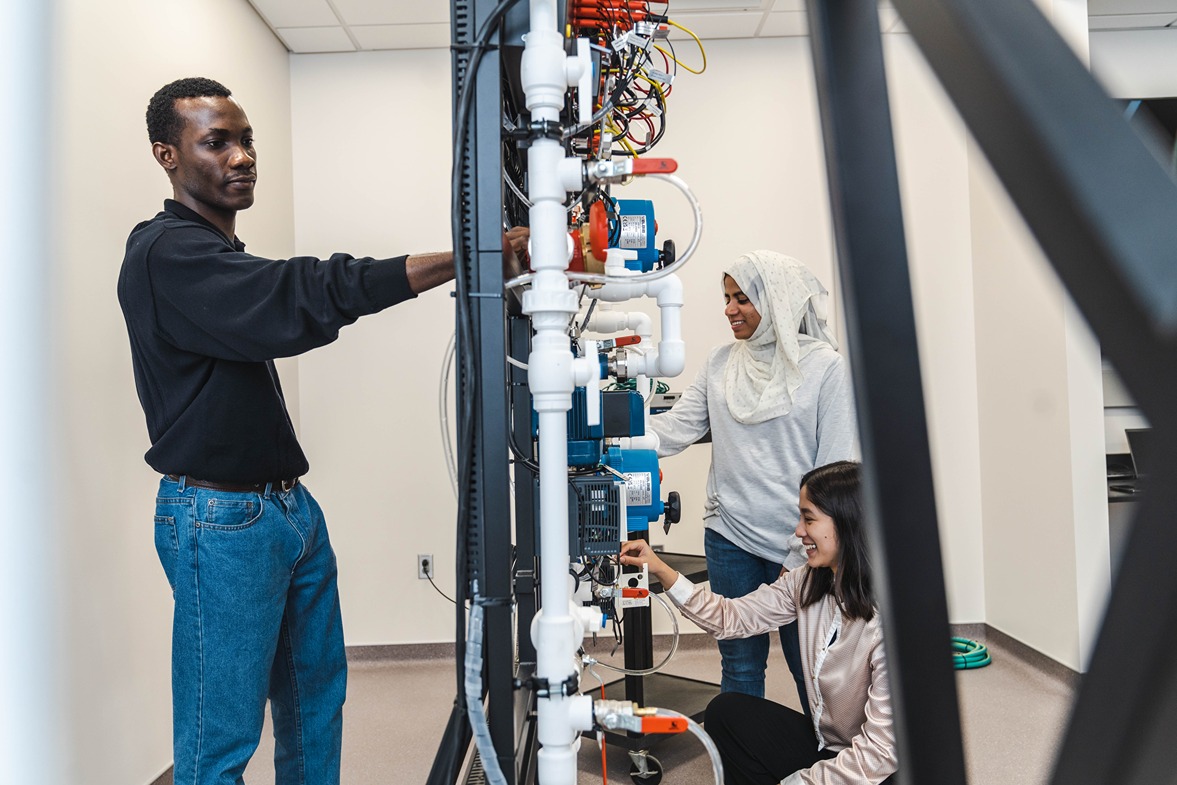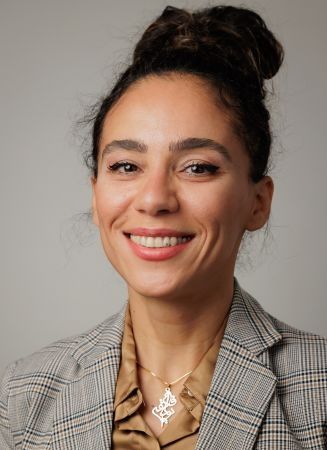
Oluwabunmi Iwakin, a first-year PhD student in the Department of Civil and Environmental Engineering, wants to improve the efficiency of water infrastructure systems and make them more resilient.
“I have always been interested in the science that goes into innovation and solving real-world problems,” he says, “with one of those problems being the water crisis in various countries worldwide.”
The need to manage water appropriately hits close to home for Iwakin, who graduated from Nigeria’s Federal University of Technology, Akure, with a civil engineering degree in 2019. Akure is a city that depends predominantly on groundwater that is easily contaminated.
According to The World Bank, as of 2020, only 22% of Nigeria’s population uses safely managed drinking water services, compared with 98% of the U.S. population.
Generally, Nigeria has less-developed public water infrastructure, causing individuals to rely on private sources, Iwakin says. In Akure, these private sources lack adequate government “source-water” protection, so water safety is a concern.
At the root of the problem, he says, is a deficit in technology to support and maintain water infrastructure.
Living in Akure “helped me realize how much of a global crisis water stress is,” he says, and think about “possible techniques that can positively impact these infrastructure systems.”
Iwakin is a member of Lehigh’s Interconnected Critical Infrastructure Systems Engineering (CONCISE) Laboratory, which is led by Farrah Moazeni, an assistant professor of civil and environmental engineering.
“Water infrastructure,” Moazeni explains, encompasses specific aspects of water distribution, including reservoirs, storage tanks, piping systems, and additional ways water is distributed to consumers.
Modern water infrastructure systems also include sensors, she says, which collect data that can help authorities gain insight into a variety of issues, such as system maintenance needs and periods of peak demand. Tracking how much water is sent to a location and how much is actually used/collected, for instance, can direct efforts to reduce leakage in the system.
Iwakin is developing probabilistic machine learning models that can analyze the data collected by these types of sensors—while accounting for future uncertainties—to help water-resource managers and other decision-makers make more informed choices.
Machine learning techniques identify trends in consumer demand and predict infrastructure deterioration by forecasting external factors such as population growth and weather/climate conditions. Being able to predict when and where water is most in demand helps optimize its distribution by reducing waste and the amount of energy required to power the systems.
Iwakin says his research draws on his interest in sustainability and desire to increase the accessibility of clean drinking water.
Moazeni sees her lab’s work contributing to even wider sustainability missions in urban areas.
“Water is valuable, and not something we can be careless about,” she says. “You try to minimize losses, costs, and energy consumption. Then, you can expand your coverage to make sure that more people have access to clean, safe water.”
One of her long-term goals is to prove to policymakers that this predictive technology can be trusted, so that it can be integrated into more communities. She says she would like to see future efforts to replace aging infrastructure guided by this new, data-informed approach.
Iwakin is also involved in a separate research effort outside of Moazeni’s lab tackling a different sustainability challenge—this time at the intersection of clean energy, waste management, and artificial intelligence.
He is one of two graduate students on a team led by Lehigh’s Energy Research Center that is developing a new method to streamline and optimize the analysis of trash, aka municipal solid waste (MSW), so it could potentially be used in a waste-to-bioenergy system. The project, which is funded by the U.S. Department of Energy, combines two cutting-edge spectroscopy techniques with AI.
Iwakin works with the team to develop AI models for the real-time analysis of MSW and generate reliable relationships between such analysis and higher-order parameters, such as the ash fusion temperature, relevant for optimal combustion operating conditions of the waste-to-bioenergy process. He finds it thrilling to be part of a project that will have a significant impact on how biofuel technologies are being adopted across the U.S.
Iwakin says his decision to attend graduate school in the United States was driven by his desire to specialize using real-world data to support the planning and management of resilient infrastructure.
He saw Lehigh as the perfect fit because of its prestigious reputation and research accessibility.
So far, he says, he has been impressed by the quality of Lehigh’s faculty and facilities, while adjusting to the new academic and social environment.
Although his schedule is fast-paced and demanding—a typical day full of meetings, classes, and work starts at 6 a.m.— he also faces the reality that the research moves at deliberate pace, which can be challenging for someone as driven as Iwakin.
The water management field, in particular, is relatively young, he says, and making progress isn’t as simple as drawing one conclusion.
“This is an instance with a new industry where professionals decide if what you’re working on works well,” he says.
Iwakin enjoys the mix of computational and experimental research that goes on in the CONCISE lab.
“It’s fun and challenging,” he says. “It balances my coursework well.”
—Kate Turkeltaub ’23 is a student writer for the P.C. Rossin College of Engineering and Applied Science.

